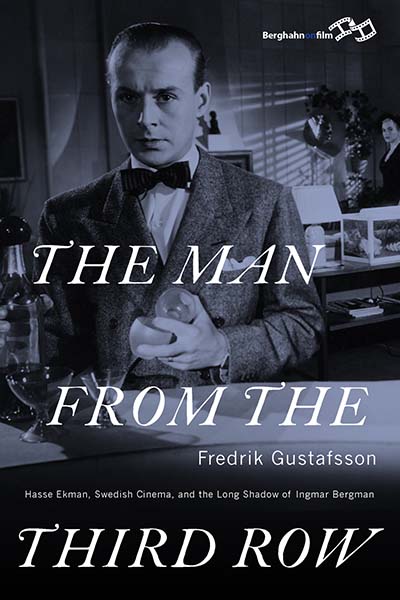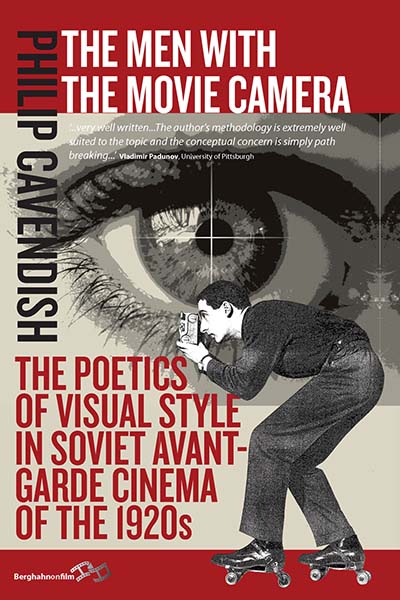
This Saturday 31st of August, cinemas across the UK will be offering largely discounted tickets in celebration of National Cinema Day, sharing the experience and enjoyment of the big screen with audiences.
In the spirit of this day, we have compiled our latest titles in cinema studies below.
For more content, you can browse our Film & Television subject page here.

Paperback Available
The British Glamour Film and the Permissive Society
Benjamin Halligan
“Halligan thrives when exploring a text’s cultural contradictions and the cracks in the philosophies underpinning the work. However, the book’s greatest asset is in taking these films (which rarely appear in most histories of British cinema) seriously.” • Choice
Read Introduction

Media Cultures and Knowledge Production in Cold War Europe
Edited by Mariana Ivanova and Juliane Scholz
“With a focus on global scientific culture during the Cold War, this anthology incisively demonstrates how scientific media were never simply transparent tools for research or pedagogy, but also crucial components within powerful geopolitical institutions.” • Benjamin Schultz-Figueroa, Seattle University.
Read Introduction

East German Documentary Cinema
Edited by Seán Allan and Sebastian Heiduschke
More than 30 years after the collapse of the German Democratic Republic, its cinema continues to attract scholarly attention. Documenting Socialism moves beyond the traditionally analyzed feature film production and places East Germany’s documentary cinema at the center of history behind the Iron Curtain. Covering questions of gender, race and sexuality and the complexities of diversity under the political and cultural environments of socialism, the specialist contributions in this volume cohere into an introductory milestone on documentary film production in the GDR.
Read Introduction

Open Access
Migration, Dislocation and Movement on Screen
Edited by Ruxandra Trandafoiu
Contemporary screen industries such as film and television have become primary sites for visualizing borders, migration, maps, and travel as processes of separation and dislocation, but also connection. Migration, Dislocation and Movement on Screen pulls case studies in film and television industries from throughout Europe, North Africa, and Asia to interrogate the nature of movement via moving images. By combining theoretical, interdisciplinary engagements with empirical research, this volume offers a new way to look at screen media’s representations of our contemporary world’s transnational and cosmopolitan imaginaries.
Read Introduction

To be published October 2024
The Central European Imaginary in the Films of Stanley Kubrick
Edited by Nathan Abrams and Jeremi Szaniawski
“With some fascinating insights into an unusual topic new to Kubrick studies, this wide-ranging collection of essays firmly and persuasively situates Stanley Kubrick’s work in the art and culture of Central Europe.” • Robert Kolker, the University of Maryland, author of A Cinema of Loneliness, co-author of Kubrick: An Odyssey

Wilhelm Thiele between Vienna, Berlin, and Hollywood
Edited by Jan-Christopher Horak and Andréas-Benjamin Seyfert
William Thiele is remembered today as the father of the sound film operetta with seminal classics such as Drei von der Tankstelle (1930). While often considered among the most accomplished directors of Late Weimar cinema, as an Austrian Jew he was vilified during the onset of the Nazi regime in 1933 and fled to the United States where he continued making films until the end of his career in 1960. Enchanted by Cinema closely examines the European musical film pioneer’s work and his cross-cultural perspective across forty years of filmography in Berlin and Hollywood to account for his popularity while discussing issues of ethnicity, exile, comedy, music, gender, and race.
Read Introduction

Cinematically Transmitted Disease
Eugenics and Film in Weimar and Nazi Germany
Barbara Hales
Propaganda played an essential role in influencing the attitudes and policies of German National Socialism on racial purity and euthanasia, but little has been said on the impact of medical hygiene films. Cinematically Transmitted Disease explores these films for the first time, from their inception during the Weimar era and throughout the years to come. In this innovative volume, author Barbara Hales demonstrates how medical films as well as feature films were circulated among the German people to embed and enforce notions of scientific legitimacy for racial superiority and genetically spread “incurable” diseases, creating and maintaining an instrumental fear of degradation in the German national population.
Read Introduction

Extreme Filmmaking in the 1960s
Michael Mirabile
Edges of Noir challenges the notion that noir film nearly vanished after 1958 until its subsequent “neo-noir” revival between 1973 and 1981. The 1960s, regardless of critical neglect, include some of the most provocative films of the post-World War II decades. Often formally disruptive and experimental, films including Shock Corridor (1963), Mirage (1965), The 3rd Voice (1960), and Point Blank (1967) evoke controversial issues of the era, deriving dynamic influences amongst exploitation cinema, sensationalistic American B movies, and the European New Wave movement. Whether the focus is on nuclear destruction, mind control, or surveillance, late noir films, above all else, vividly portray the collective fears from the time.
Read Introduction

Stories between Tears and Laughter
Popular Czech Cinema and Film Critics
Richard Vojvoda
While histories of Czech cinema often highlight the quality of Czechoslovak New Wave films made in the 1960s, post-socialist Czech cinema receives little attention. Through a methodology of historical reception, Stories between Tears and Laughter explores how attitudes towards post-socialist Czech cinema have shifted but still viewed it as popular cinema. By analysing publicity materials, reviews and articles, Richard Vojvoda offers a new perspective on the notions of cultural value and quality that have been shaping the history of post-socialist Czech cinema.
Read Introduction

Cinema and the Environment in Eastern Europe
From Communism to Capitalism
Edited by Masha Shpolberg and Lukas Brasiskis
“This collection provides a comprehensive analysis of Eastern European film culture and ecocinema, integrating them expertly to provide a deep historical and geocultural analysis of variations in ecocinematic representations and the ways these film cultures have been engaging with environmental matters. The contextualization of existing scholarship with the particularities of Eastern European political and cultural history is exciting and innovative.” • Pietari Kaapa, University of Warwick
Read Introduction

The Cinematic Language of Theo Angelopoulos
Vrasidas Karalis
“This illuminating book offers a powerful synthesizing account of the films of Theo Angelopoulos by framing them within a biographical context. By positioning Angelopoulos’ work within an array of philosophical, cinematic, and art-historical contexts, the author brings us closer to Angelopoulos’ existential, political, philosophical and aesthetic quests.” • Lydia Papadimitriou, Liverpool John Moores University
Read Introduction
For more content, you can browse our Film & Television subject page here.
Berghahn Journals

PROJECTIONS
The Journal for Movies and Mind
Editor: Ted Nannicelli, University of Queensland

SCREEN BODIES
The Journal of Embodiment, Media Arts, and Technology
Editor: Andrew Ball, Emerson College
Current Issue: Volume 9, Issue 1 (June 2024)








